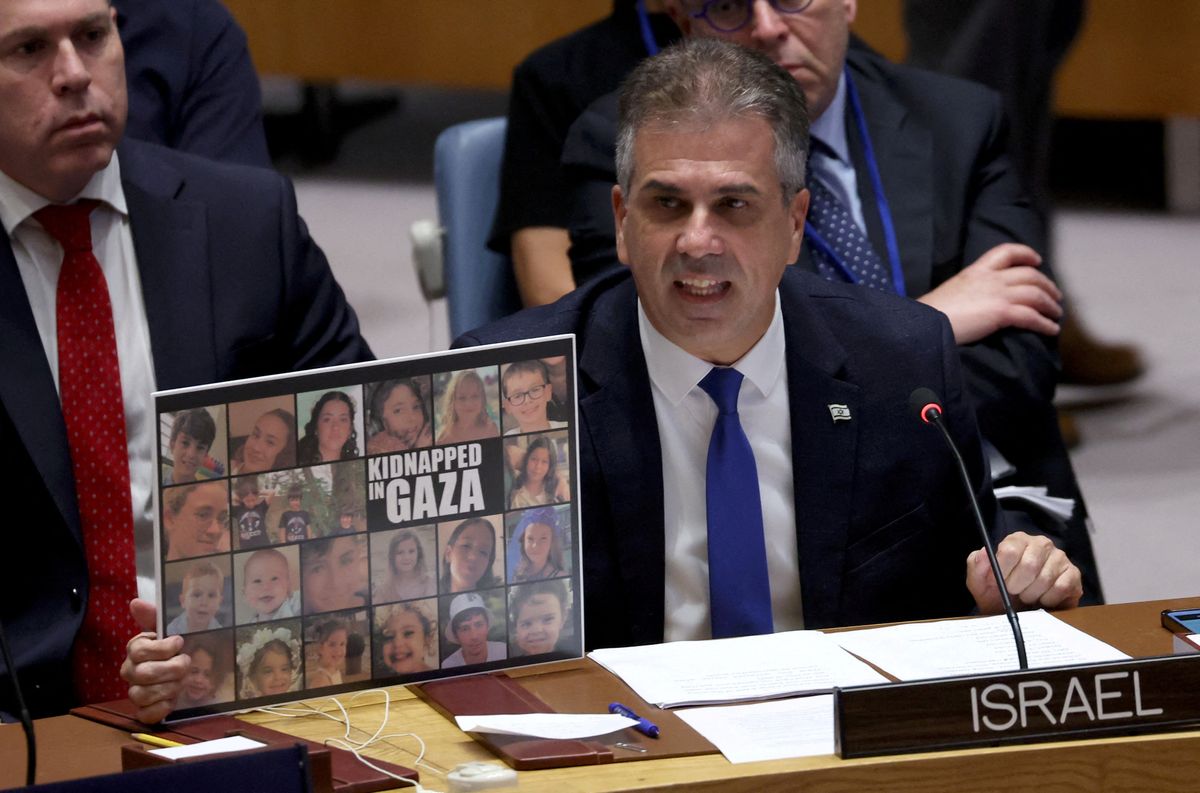Fresh out of Barnard College with a degree in political science, Riley is a writer and reporter for GZERO. When she isn’t writing about global politics, you can find her making GZERO’s crossword puzzles, conducting research on American politics, or persisting in her lifelong quest to learn French. Riley spends her time outside of work grilling, dancing, and wearing many hats (both literally and figuratively).
The United Nations Security Council — whose one job is to respond during times of international conflict — failed to pass a nearly unanimous resolution on the Israel-Hamas war because of a US veto.
The resolution condemned Hamas’ attack and called for humanitarian access, protection of civilians in Gaza, and the release of Israeli hostages. On Wednesday, the US was the lone "no" vote, but because it is one of five nations on the council with veto power, the resolution failed.
The US vetoed it because it did not mention Israel’s right to self-defense. The stance drew accusations of hypocrisy and comparisons to Russia, which has used its veto power to paralyze the council on the war in Ukraine.
US Ambassador Linda Thomas-Greenfield said that it was too soon to issue a resolution, arguing that more facts were needed from the ground and that current diplomatic efforts, including those by President Joe Biden, should be allowed to unfold.
Representatives from both Israel and the Palestinian Authority said the council had failed them. But that’s about all the two agreed on. The PA’s foreign minister is pushing for the council to call for a cease-fire.
Meanwhile, Israel’s envoy is demanding the resignation of UN Secretary-General António Guterres, who also called for a cease-fire at Tuesday's meeting. Guterres opened the debates by condemning Hamas for the brutal attacks and Israel for subjecting Palestinians “to 56 years of suffocating occupation,” noting that the Oct. 7 attack “did not happen in a vacuum.”
While rifts continue to divide and paralyze the UN Security Council, the humanitarian crisis and risk of regional escalation are accelerating.






